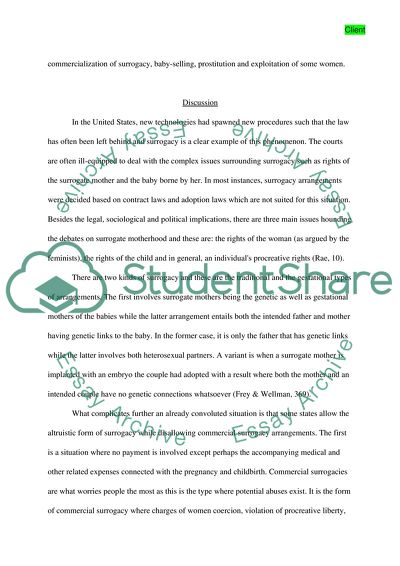Cite this document
(Surrogacy in the USA Annotated Bibliography Example | Topics and Well Written Essays - 2250 words, n.d.)
Surrogacy in the USA Annotated Bibliography Example | Topics and Well Written Essays - 2250 words. Retrieved from https://studentshare.org/social-science/1728505-topic-analysis-annotated-bibliography
Surrogacy in the USA Annotated Bibliography Example | Topics and Well Written Essays - 2250 words. Retrieved from https://studentshare.org/social-science/1728505-topic-analysis-annotated-bibliography
(Surrogacy in the USA Annotated Bibliography Example | Topics and Well Written Essays - 2250 Words)
Surrogacy in the USA Annotated Bibliography Example | Topics and Well Written Essays - 2250 Words. https://studentshare.org/social-science/1728505-topic-analysis-annotated-bibliography.
Surrogacy in the USA Annotated Bibliography Example | Topics and Well Written Essays - 2250 Words. https://studentshare.org/social-science/1728505-topic-analysis-annotated-bibliography.
“Surrogacy in the USA Annotated Bibliography Example | Topics and Well Written Essays - 2250 Words”, n.d. https://studentshare.org/social-science/1728505-topic-analysis-annotated-bibliography.


